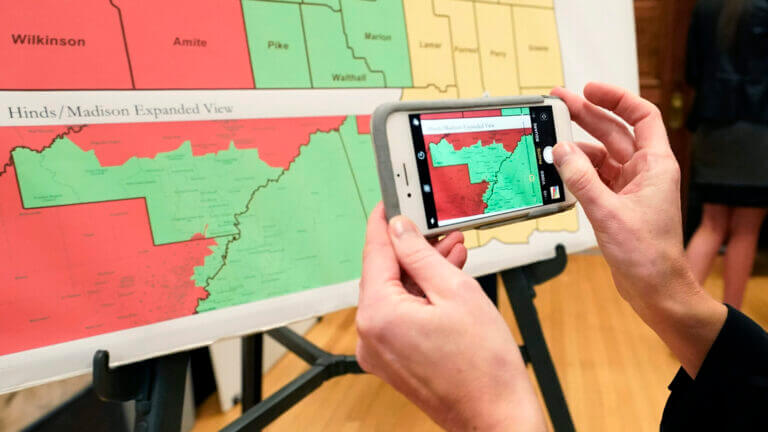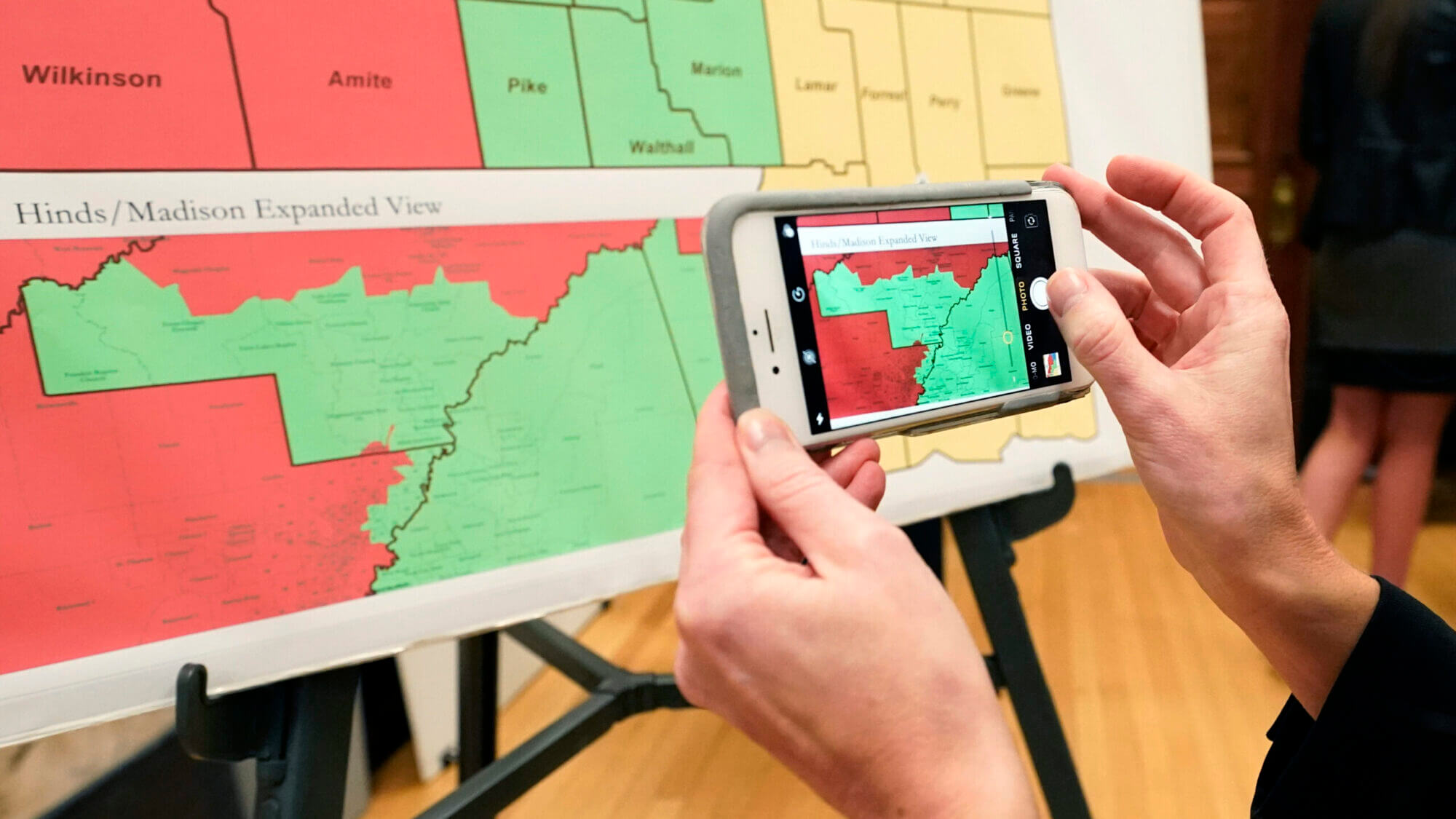

A Mississippi attorney is at the center of Texas’s unusual mid-decade effort to redraw its congressional districts, which has prompted a national battle between red and blue states over partisan gerrymandering.
Tommie Cardin, an attorney in the Ridgeland office of national law firm Butler Snow, has listed in his online profile that he is counsel to the chair and staff of the Texas House Select Committee on Congressional Redistricting.

Cardin and a spokesperson for the law firm did not respond to questions for this story. But Texas news outlets have reported that Cardin is the attorney for the committee, and the House member who filed the redistricting legislation said he received the proposed maps from Butler Snow.
After the U.S. Census is completed at the start of a new decade, states typically use the new data to tweak congressional district lines to account for population shifts. But President Donald Trump pushed Texas leaders to redraw the state’s congressional maps to flip five safe Democratic U.S. House seats in favor of Republicans.
The U.S. Supreme Court ruled in 2019 that states can draw electoral maps on partisan grounds. But under Section 2 of the Voting Rights Act, communities of color must still have an equal opportunity to elect candidates of their choice.
The Texas House was set to approve the maps on Wednesday, launching a tit-for-tat battle among Democratic- and Republican-led states.
California Gov. Gavin Newsom announced last week that he will ask voters in a Nov. 4 special election to approve redrawn districts intended to give Democrats five more U.S. House seats in the fight for control of Congress.
Cardin was perhaps enlisted to help the Texas efforts because Mississippi is in the same appellate circuit as Texas. Mississippi lawmakers also have a long history of tangling with civil rights groups, federal courts and themselves over congressional district boundaries.
Cardin has represented the Mississippi Legislature in numerous complicated redistricting litigation cases, including its latest congressional redistricting effort. Civil rights groups attempted to challenge the state’s map, but a federal court dismissed the effort over legal technicalities.
For decades, white Democratic leaders sought to diminish Black voting blocs during the redistricting process. Mike Espy became the first Black person elected to Congress from Mississippi when he won the 2nd Congressional District seat in the late 1980s. (Mississippi had two Black U.S. senators during Reconstruction, when senators were appointed rather than elected. Hiram Rhodes Revels served 1870-71, and Blanche Kelso Bruce served 1875-80.)
In the early 2000s, when Democrats still controlled both chambers of the Mississippi Legislature, lawmakers faced the difficult task of drawing new districts as the state went from five districts to four.
House Speaker Tim Ford proposed drawing the state’s 1st District to encompass much of north Mississippi and stretching it down toward suburban Jackson. He dubbed his plan the “tornado district,” which opponents of his proposal used to prevent its adoption.
Lt. Gov. Amy Tuck, the presiding officer of the Senate who was then a Democrat but later switched to the Republican Party, blocked the “tornado” plan. The chambers’ two leaders couldn’t agree on a plan, so the courts also drew the congressional maps that decade.
Cardin helped represent the Legislature in that unusual scenario as well.